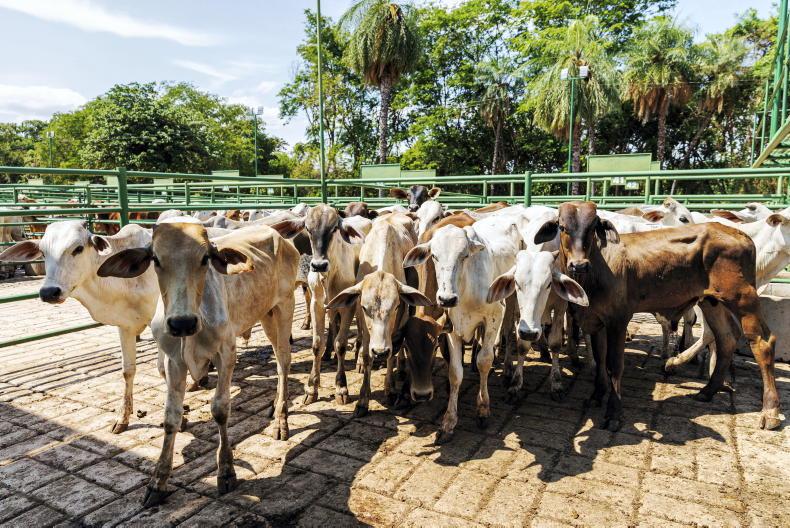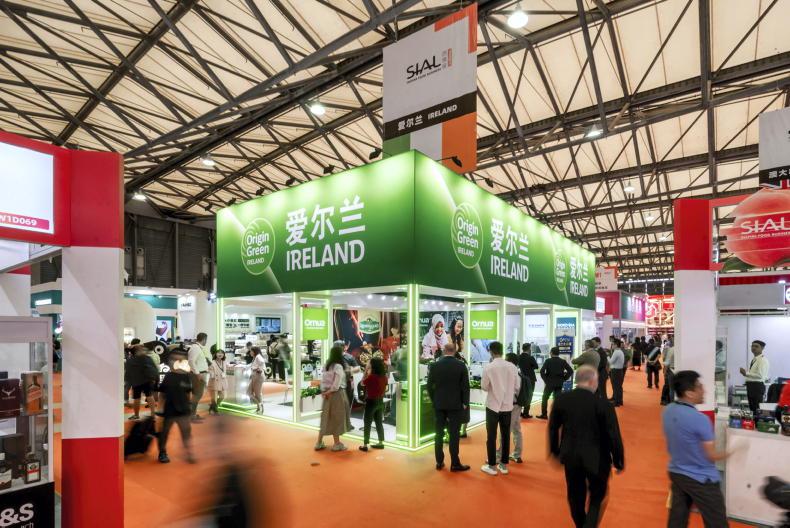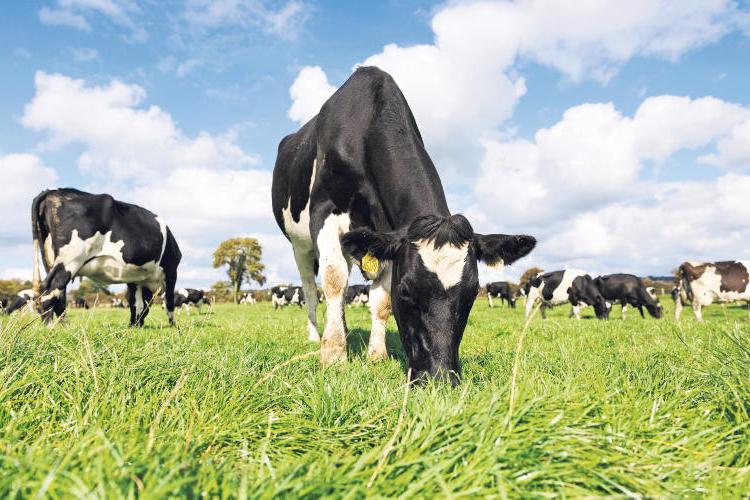The search for new markets for Irish food and drink exports outside the UK has taken on a new urgency in light of Brexit, Minister for Agriculture Michael Creed has said.
Uncertainty surrounding future trading arrangements between Ireland and the UK, as well as sterling volatility have highlighted Ireland’s dependency on the UK for agri-food exports.
Sterling weakness wiped a massive €570m off the value of exports to the UK last year, figures from Bord Bia revealed this week.
The UK accounted for 37% or €4.13bn of all food and drink exports from this country in 2016.
Sterling weakness wiped a massive €570m off the value of exports to the UK last year
Half of all the beef exported from Ireland went to the UK, amounting to 270,000t and €1.1bn in value.
Speaking at the launch of the Export Performance and Prospects 2016-2017 report, Minister Creed said Ireland had put in a stellar performance by increasing food and drink exports by 40% since 2010 to reach €11.15bn last year.
However, he added that the Government was continuing to search for new market opportunities globally, assisted by agencies like Bord Bia.
“That search has an added urgency now in light of the challenge Brexit poses,” said Minister Creed, adding that there would be a particular focus on developing markets in the Gulf region, north Africa and Asia. Trade missions to those areas are in the pipeline for 2017.
Listen to "Creed on markets in 2017" on Spreaker.
Increased opportunities
“As the price of oil increases, oil-dependent economies will recover and opportunities increase,” said the minister.
On the potential of beef trade to China, he added: “My department is continuing to engage with Chinese authorities at both the technical level and the diplomatic level.”
However, the focus on non-UK markets would not take away from the existing Irish trade with the UK, he said.
Whether it is a hard Brexit or a soft Brexit, the UK will remain a big importer of food
“We will not be turning our back on Britain; it is far from a lost cause,” said Minister Creed. “The UK market is a very important market for us. I’ve met with the CEO of Tesco and the CEO of Sainsburys.
“The general consensus is that 2017 will see food price inflation in the UK which will benefit Irish producers. Food prices are expected to inflate by 4-5% in 2017.”
He continued: “Whether it is a hard Brexit or a soft Brexit, the UK will remain a big importer of food. It will not become self-sufficient overnight.”
Read more
Who benefits from export growth?
The search for new markets for Irish food and drink exports outside the UK has taken on a new urgency in light of Brexit, Minister for Agriculture Michael Creed has said.
Uncertainty surrounding future trading arrangements between Ireland and the UK, as well as sterling volatility have highlighted Ireland’s dependency on the UK for agri-food exports.
Sterling weakness wiped a massive €570m off the value of exports to the UK last year, figures from Bord Bia revealed this week.
The UK accounted for 37% or €4.13bn of all food and drink exports from this country in 2016.
Sterling weakness wiped a massive €570m off the value of exports to the UK last year
Half of all the beef exported from Ireland went to the UK, amounting to 270,000t and €1.1bn in value.
Speaking at the launch of the Export Performance and Prospects 2016-2017 report, Minister Creed said Ireland had put in a stellar performance by increasing food and drink exports by 40% since 2010 to reach €11.15bn last year.
However, he added that the Government was continuing to search for new market opportunities globally, assisted by agencies like Bord Bia.
“That search has an added urgency now in light of the challenge Brexit poses,” said Minister Creed, adding that there would be a particular focus on developing markets in the Gulf region, north Africa and Asia. Trade missions to those areas are in the pipeline for 2017.
Listen to "Creed on markets in 2017" on Spreaker.
Increased opportunities
“As the price of oil increases, oil-dependent economies will recover and opportunities increase,” said the minister.
On the potential of beef trade to China, he added: “My department is continuing to engage with Chinese authorities at both the technical level and the diplomatic level.”
However, the focus on non-UK markets would not take away from the existing Irish trade with the UK, he said.
Whether it is a hard Brexit or a soft Brexit, the UK will remain a big importer of food
“We will not be turning our back on Britain; it is far from a lost cause,” said Minister Creed. “The UK market is a very important market for us. I’ve met with the CEO of Tesco and the CEO of Sainsburys.
“The general consensus is that 2017 will see food price inflation in the UK which will benefit Irish producers. Food prices are expected to inflate by 4-5% in 2017.”
He continued: “Whether it is a hard Brexit or a soft Brexit, the UK will remain a big importer of food. It will not become self-sufficient overnight.”
Read more
Who benefits from export growth?










SHARING OPTIONS